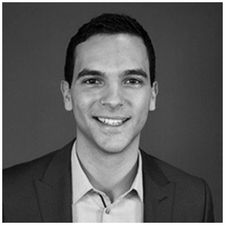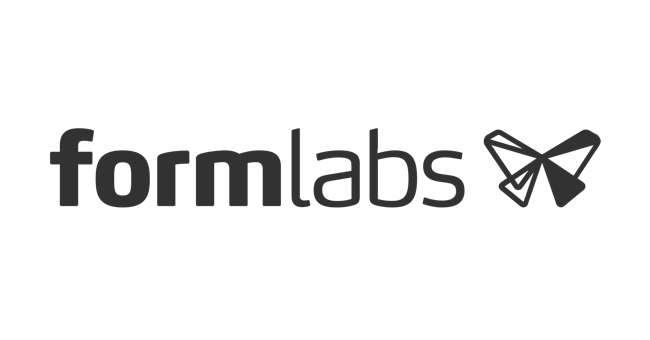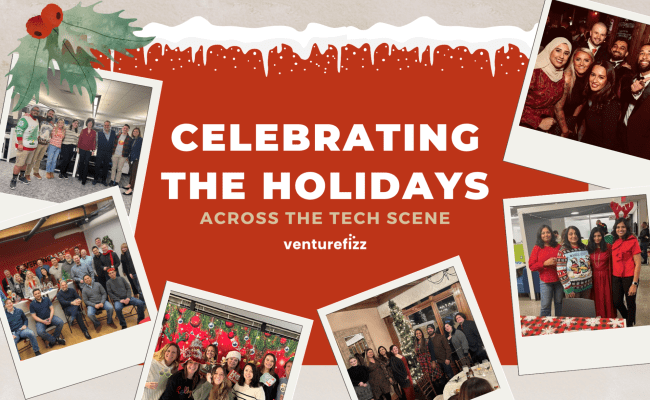What does the career path and day in the life look for the Channel Operations and Strategy Lead at Formlabs?
We interviewed Okan Okutgen to find out.
Career Path
Where did you grow up? What did you parents do for work? What was your very first job?
I was born and brought up in Istanbul, Turkey. I moved to the USA for college and have been living abroad since then. My father studied economics, but runs his own distributor business in Istanbul and provides spare parts to car manufacturing facilities. My mother was an English lecturer at a university, and she is now retired.
My first job was my college internship at Daimler AG (parent company of Mercedes Benz) in Stuttgart, Germany. I was placed there through my university’s “Summer Work Program in Germany.” I was working in the procurement department and had to develop a strategy and plan for procurement of industrial washing machines. The coolest thing about it was that I got to improve my German, and also got to experience a foreign working culture early on.
Why did you decide to study Mechanical and Aerospace Engineering at Princeton? It looks like you were very involved in various entrepreneurial efforts on campus. Can you highlight some of the details?
I love solving complex problems and engineering education gives you a distinct way of understanding, dissecting, and solving problems. I picked mechanical engineering because I think it is a fundamental engineering branch that has many broad applications. It does not narrow you down. I studied Aerospace Engineering because I love challenging myself. I found “being a rocket scientist” pretty fascinating; in one class we designed a microsatellite that would detect new planets and tested our design at NASA’s Jet Propulsion Laboratory. Funny detail – since I was a foreign national, a security guard followed me during our entire stay at NASA, including accompanying me to the bathroom!
I have always been interested in the intersection of engineering/technical solution and business. I believe a lot of the big problems in the world such as climate change, social inequality etc. can be solved by innovative businesses that make financial sense. Unfortunately – not everyone will be an environmentalist. However, if you build profitable green businesses that are integrated into a capitalist system, you can broaden the number of people who will contribute to a more sustainable life even though they might not be as passionate about the environment.
Princeton was a great environment to explore those interests and to highlight this message. I became involved with, and then served as President of, the Princeton Entrepreneurship Club. This is one of the most active and biggest student clubs on campus. One of my goals as president was to make environmental and social entrepreneurship a more prominent part of our activities such as our annual Business Plan Competition and our ongoing speaker series.

What was your first job out of your undergraduate studies?
I worked at RED (Recycled Energy Development), which was a small company with a mission to “profitably reduce greenhouse gas emissions.” The mission statement appealed to me since it aligned with my view that big problems can be solved by businesses. At RED we built, owned and operated combined heat and power plants and waste energy recovery plants that would produce highly efficient energy at industrial sites in the USA. In the business development department, I did the techno-financial analysis of various projects and worked on the acquisition of a major industrial park power plant. As part of my role, I had to be able to be down in the weeds of the technical, legal and financial details and marry them, but rise up to see the big picture and help craft deals that met the goals of various stakeholders. I also met one of my mentors Tom Casten, who was the chairman of the company. He has started or led multiple companies in the energy space. He is a published author who was also actively contributing to energy efficiency literature with articles. I was privileged to be part of some of his work.
Why did you decide to return back to school and earn your MBA from HBS?
I still wanted to do more in the intersection of engineering and entrepreneurship. Even in undergraduate, as I was studying engineering, I knew I wanted to go to business school and complement my technical education. Business is definitely not something that you can just learn in school. However, my two years at HBS were very defining for me as I reflected on what kind of a career I want to build and what kind of a leader I want to become. It is a unique place to do that – I was surrounded by diverse classmates who challenged me every day.
What kind of career do you want to build? What kind of leader do you want to become?
My goal is to become a leader who makes a difference in the world. I know it sounds like a cliche recruiting tagline, but it is true. Making a difference has many forms. It ranges from working in companies that have a mission that goes beyond profit, to being a coach and mentor to peers and direct reports every day. I found Clayton Christensen’s quote from his book “How will you measure your life?” very inspiring and eye-opening. He says:
“I used to think that if you cared for other people, you need to study sociology or something like it. But….I [have] concluded, if you want to help other people, be a manager. If done well, management is among the most noble of professions. You are in a position where you have eight or ten hours every day from every person who works for you. You have the opportunity to frame each person’s work so that, at the end of every day, your employees will go home feeling like Diana felt on her good day: living a life filled with motivators.”
What type of management consulting work did you do at Bain & Company?
Bain has a generalist model that focuses on strategy consulting. Given my engineering background and interest, I spent most of my time with IG&S clients (Industrial goods and services), who were more B-2-B and had technical products. I did a variety of projects such as developing a corporate strategy to drive the growth of a facilities management company, redesigning sales & operations planning for the global rental power company and streamlining the procurement efforts of a global EPC (engineering, procurement, and construction) company.
Personally one of the biggest highlights was my role in a pro-bono project as part of the Bain Green Team. We helped a sustainability data company perform more effectively by redesigning their entire operating model: including company structure, accountabilities, governance and ways of working. Our goal was to ensure that every resource and activity in the company is aligned with company strategy and mission, which is to make environmental reporting and risk management part of business decisions.
One of the key learnings from Bain is the ability to quickly ramp up about an industry or function that you are not familiar with and identify the key business levers that would bring the most value to the company whether in growth or operational efficiency. The 80/20 rule is crucial: 80% of the value comes from 20% of the work. It pushes you to do prioritization so that you only focus on the activities that will drive big change and impact, which is very important for every business where time and resources are limited.
Can you share the high-level responsibilities of your current position at Formlabs? Why did you join Formlabs?
I joined Formlabs because I was fascinated by Form 2, the most advanced desktop 3D printer ever created and the company culture. I think it is a company full of youth, drive, ambition, and willingness to set new norms in the 3D printing industry. And my time here has proven me that this was the right move for me. Every day I feel satisfied because I am building a company with my colleagues. As a fast-growing company sometimes we do things for the first time or we have to iterate fast based on new information we have. I tackle difficult problems that require trade-offs, quick thinking, flexibility, and creativity. That challenge invigorates me and grows me professionally, which I love.
My role has two hats. I am the Global Channel Operations Lead. Our channel is our network of distributors and resellers that sell Formlabs products around the world. My goal is to make sure this network works effectively and efficiently as we make more Formlabs products accessible to more end users around the globe. This involves project managing sales, marketing, customer support, and operations team globally to ensure products and services are delivered to channel partners efficiently while ensuring a good experience to end users.
I am also the lead for the North America and International Channel Sales team, where we work to grow our top-line revenue in North America, LatAm and ASEAN regions. We recruit and grow the right partners in these regions that not only allow us to hit our aggressive growth goals, but also provide the best customer experience and value to end-users. We want to make sure as many people around the world can have access to our technology and use 3D printing to create things.

Day in the Life
Coffee, tea, or nothing?
I have one cup of coffee every morning. No more, no less.
What time do you get into the office?
I get in between 8-9 am depending on when my first meeting is. I try to get in about half an hour before my first meeting to just settle in and orient myself before I start the day.
Every day is different, but can you outline what a typical day looks like for you?
Morning: I work out in the morning. Either I do HIIT (high-intensity interval training) or yoga.
Then I prepare breakfast for me and my wife: Boiled eggs and a breakfast smoothie with berries.
As I get ready, I listen to the Economist (the app has an audio version that reads you the articles).
Then as I am driving to work I talk to my family members on the phones (parents, in-laws, brother). Due to the time difference, it works best when I talk to them in the morning.
I go through my planner to orient myself for the day and prioritize my activities.
I usually have a couple of meetings especially with team members who are in European and Asian time zones.
Afternoon: I have few more meetings and usually have a couple of hours blocked for some alone working time.
Evening: Early evening I go through my emails, to make sure nothing time-sensitive is pending.
Then I go through my planner and update it accordingly based on that day’s work.
I go home and have dinner with my wife, who is a current student at HBS.
We either go out to meet friends and attend a social school activity or stay in and watch one of our TV shows. We are obsessed with the Crown.
If she has still some school work to do, I do some reading on my own or pick up some work emails.
What time do you head out of the office?
It depends. Usually, I leave between 7-8 pm.
Do you log back in at night or do you shut it down completely?
I do log back in as necessary, but I usually prefer powering through and leaving a bit later instead of logging back in. Either way, I make sure I have my family time with my wife. I have dinner with her every night.
Any productivity hacks?
I use the weekly planner (not daily!) framework from Stephen R. Covey’s “The 7 Habit of Highly Effective People.” In this planner, you divide all your tasks into 4 quadrants in a 2 by 2 matrix based on importance and urgency. You not only focus on important and urgent tasks but also focus on important and non-urgent tasks. This way you not only firefight but also spend time on what will drive long-term value. Read the book! It is not only for professional life!
What are the 3 apps that you can’t live without?
- 7 Minute Workout (by Johnson & Johnson): Great way to exercise and challenge yourself if you have limited time. I do 2-3 cycles of 7 min HIIT.
- The Economist: I listen to the audio version as I get ready in the mornings. It not only keeps me current with what is happening in the world but oddly calms me down:)
- Whatsapp: Need to stay in touch with friends and family.
What professional accomplishment are you proudest of?
Working in companies with cultures and missions that excite me such as RED and Formlabs. I am proud to have found companies and roles that appeal to my deeper values and motivate me to perform at my best. I enjoy coming to work every day and I think that is a privilege.
Who do you admire or call upon for professional advice?
So many, but first that pops to mind is Elon Musk. I admire him, as he pushes the boundaries and tries to make the world a better place with business.
I call upon my core support network that consists of my wife, close friends, family and my career coach (yes such a thing exists and provided as support by my school to alumni.). My wife is my rock and best friend. She supports and challenges me every day.
Also, I can admit that I read a lot of professional development and self-help books.
Keith Cline is the Founder of VentureFizz. Follow him on Twitter: @kcline6.
Images courtesy of Okan Oktugen.






